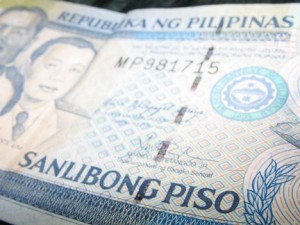
Foreign portfolio investments more than doubled in January 2013 as fund owners were encouraged by news that the Philippines could get an investment grade this year, monetary officials said.
Foreign portfolio investments more than doubled in January as fund owners were encouraged by news that the Philippines could get an investment grade this year, according to monetary officials.
Data from the Bangko Sentral ng Pilipinas showed that the gross inflow of foreign portfolio investments reached $2.8 billion in the first month of the year—more than twice the $1.2 billion registered in the same period of 2012.
In terms of net inflow, which is gross inflow less the outflows, foreign hot money hit $1.27 billion—more than double the $586 million recorded a year ago.
Purchases of stocks, government securities and corporate bonds formed the bulk of foreign portfolio investments in the Philippines.
The surge in foreign “hot money” also pushed the Philippine Stock Exchange Index to record highs early this year. BSP officials said the figures indicated that foreign capital flows would remain robust throughout the year.
The Philippines, along with other emerging markets in Asia, drew more foreign capital away from the United States and parts of Europe because of the lingering problems of the industrialized countries, said BSP Assistant Governor Ma. Cyd Tuaño-Amador.
Foreign funds are also pulled toward emerging markets like the Philippines because of their favorable economic performance, she added.
This development presents “considerable challenges,” such as “liquidity management and maintenance of stability in the country’s financial markets,” Amador said.
The BSP welcomes foreign portfolio investments because the funds help boost activity in the country’s capital markets. But the central bank also said that if the surge in foreign portfolio investments could not be properly managed, it could threaten the economy by accelerating inflation and heightening the volatility of the exchange rate.
This is why the BSP is constantly monitoring foreign capital inflows and is prepared to implement policy adjustments when necessary, Amador said.
The BSP “will continue to deal with the challenge,” Amador said. “We have a deep policy toolkit in responding to a surge in capital flows.”
Last month, the BSP put a cap on banks’ holdings of non-deliverable forwards (NDFs) to curb foreign capital inflows. NDFs are hedging instruments, which could also be used to generate income through speculation on the peso.